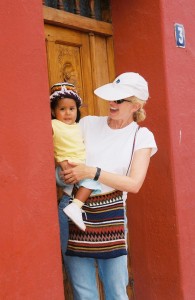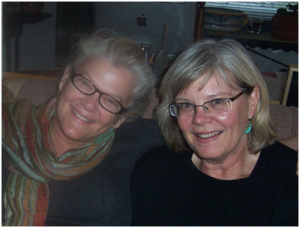My sister Deanna, who lives in Boston, directed me to this story about a 45-year-old, single, Massachusetts woman named Dee Dee Martin who is trying to adopt a 4-year-old girl from Nepal. The story was reported on October 8 by WBUR-FM, an NPR affiliate. It’s the kind of situation I dreaded as an adoptive parent: midway through the process, the laws change, and suddenly you’re trapped at square one. Sadly, the scenario is one painfully familiar to the Guatemala900, families waiting since for their children since Guatemala closed adoptions in December 2007.
Read the entire article here. Excerpts are below.
A woman from Revere is caught in an international adoption nightmare. Dee Dee Martin has been in Kathmandu, Nepal for more than two months, unable to bring her newly adopted daughter back to Massachusetts with her. The U.S. closed adoptions from Nepal because they fear some of the children are being stolen and sold.
…They can’t come back here because the U.S. won’t recognize the adoption.
Around the time Martin arrived in early August, the U.S. closed all new adoptions from Nepal. But Martin had Nepalese government approval and had taken custody of a 4-year-old girl named Bina. Martin thought families in the middle of adoptions would still be processed, but that hasn’t happened. She says the U.S. Embassy won’t give her specific information about her case and what’s taking so long.
“They just say that you are deemed as ‘inconclusive,’ and then the Embassy, because you are inconclusive, their hands are tied to issue a visa at this time,” Martin said….
Sens. John Kerry and Scott Brown co-signed a letter to Secretary of State Hillary Clinton last month, saying Martin and other families are “enduring extreme emotional and financial burdens while their childrens’ cases are investigated further.”
The letter urges the U.S. government to resolve the cases quickly. In Martin’s case, she’s on unpaid leave from her job selling skin care products to salons. Her company extended her leave, but she fears she’ll be fired if she doesn’t return by Oct. 25. Despite this, Martin says she’s not leaving Nepal without Bina.
“It is absolutely not an option to leave my child in this country. I could not put her in any kind of boarding school or pay to board her back in an orphanage,” Martin said.
“My daughter is 4-years-old. She is very aware of who I am. The orphanage when we first met let her know that ‘this is your mummy’ — it would destroy her psychologically if I ever did that.”
Martin says she has police reports showing Bina was abandoned at 6-months-old, starving and with a cleft palate.
Police posted ads but nobody claimed her. She has been in the same orphanage for more than three years. Martin says these circumstances prove to her Bina is in fact an orphan and deserves to come to Revere with her new mother.



 ShareThis
ShareThis


